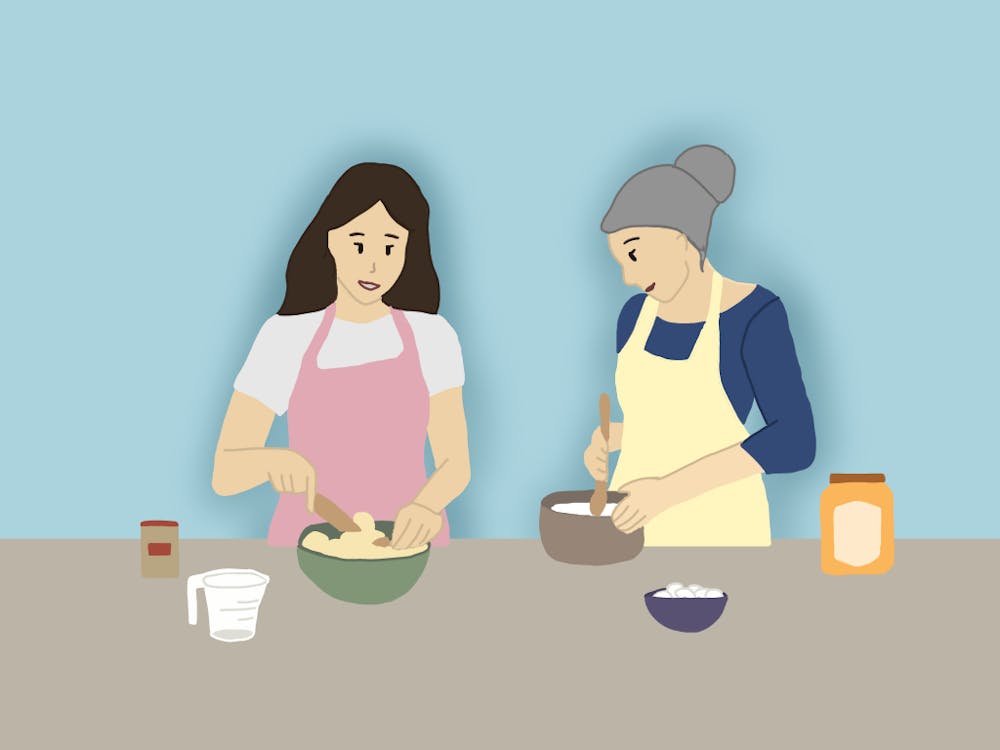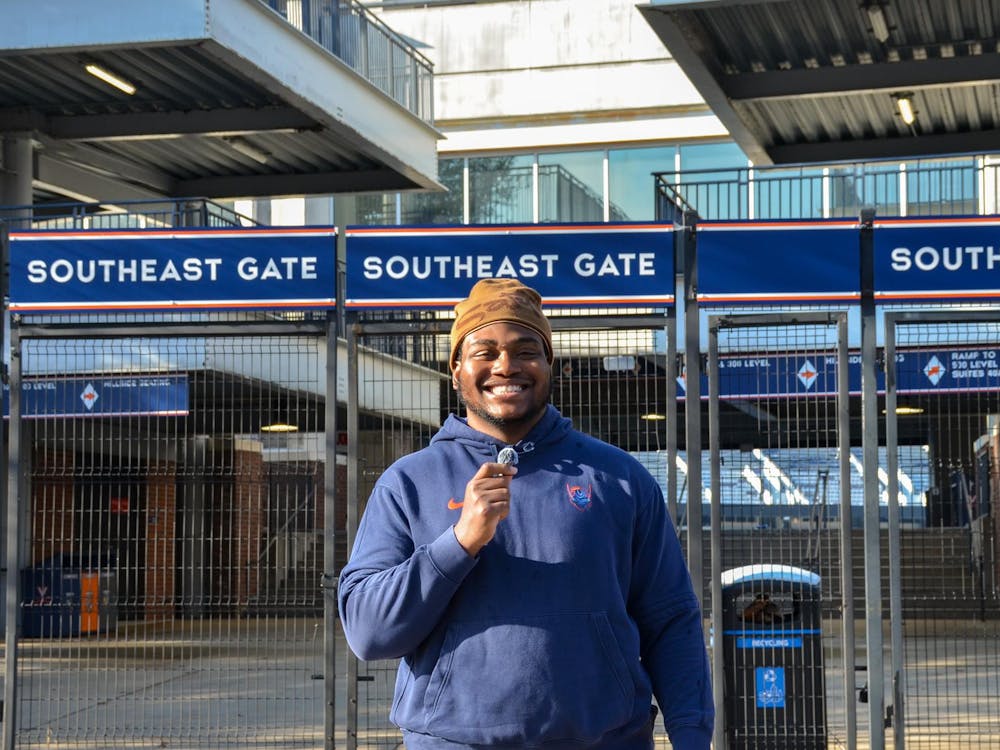Canoeing, s'mores around the campfire and hikes through the woods: kids at Camp Kesem Virginia get a similar experience to other kids at summer camps in many respects. For kids at Camp Kesem, however,the week of fun they experience may be one of only a few opportunities for them to just be a kid.
A different kind of camp
Camp Kesem in Virginia is a college student-run sleepaway camp at Camp Holiday Trails for kids with one or more parents who have or have had cancer. It is for kids ages six to 13 and is free for their parents.
The idea for Camp Kesem was started at Stanford University in 2000, but has since spread across the country. University of Virginia alumni Matt Lucido and Joe Schlingbaum along with William Maixner, a University of North Carolina alumnus, co-founded Camp Kesem Virginia and held the first camp sessions in 2006.
Lucido said although the founders were nervous about how 16 kids of a wide range of ages would mesh together, the kids loved each other and did not want to go home after the week.
Fourth-year Architecture student Evan Howell, current co-chair for Camp Kesem in Virginia, said the camp allows participants to bond because they are facing similar issues.
One type of bonding experience kids encounter at Camp Kesem is "cabin chats."
Third-year College student Ashley Case, a 2007 Camp Kesem counselor, said at these nightly chats, counselors sit with campers in their cabins and talk about things such as their favorite activities that day, their favorite colors and their struggles and worries.
"A lot of times it will get into a deeper meaning where the kids do talk ... about the cancer within their family," she said.
Case added that although the counselors never ask about the cancer directly, the subject often naturally enters conversation as campers grow more comfortable discussing it.
Though working with kids whose parents have or had cancer may sound overwhelming, Case said it was not an intimidating experience.
Before going to camp, "I was like 'Oh my gosh. What if these kids come crying to me one night? What do I say to them? What if I say the wrong thing?' which I think was a fear in a lot of the counselors' minds," she said. "But when you get there, you realize that the most important thing for these kids if they do open up ... is just to listen to them."
Howell also said there are adults at the camp trained to handle situations the counselors are not.
An under-served group
Third-year Nursing student Alicia Dean, current co-chair for Camp Kesem in Virginia, said kids whose parents have or have had cancer are an under-served and overlooked group. Camp Kesem, she said, "is one of the very few services that's offered, even outside of U.Va. or Charlottesville ... for these kids."
Though these children may be overlooked elsewhere, Dean said the small ratio of campers to counselors allows for meaningful one-on-one interactions.
"A lot of these kids come in just desperately wanting attention, and they love that you can give it to them," she said.
Case said the ratio allowed her to really bond with the campers, even those outside of her cabin. One of her favorite memories from her experience at Camp Kesem last summer is of a camper by the camp name of "Camera." Case said his mother recently died of cancer, and he would carry around a stuffed bear that had been hers and call it "Mom."
Although Case said the camper was shy and frequently distanced himself from the group, on his last full day of camp, he decided to climb the rock wall for the first time.
She said when he got to the top he had the biggest smile on his face and when she told his dad about it, he was amazed to hear his son was so involved and pushing his limits, especially because he said "Camera" was afraid of heights.
"You really see how you affect these people's lives," Case said.
While the camp benefits kids who don't always get to act like kids, it also provides opportunities for kids who aren't often able to go to camp. Camp Holiday Trails is accessible for handicapped campers and for children with medical disabilities. Dean said there is also a nurse available 24 hours a day at the camp to serve those with medical needs. As a result of these factors, Dean said the camp could admit a participant who, because of a health problem, had not been able to go to other camps before.
Benefiting students and parents
While Camp Kesem provides needed attention and affection to campers, it also is beneficiary to their parents.
Howell said the parents get a week away from the kids free of charge, which is important for these families who have medical costs that could otherwise prevent them from sending their kids to camp. For example, one camper's parents took the week away from the kids to go on their first honeymoon. Howell said they had not had time for it before, having had to balance cancer treatments and their kids' lives.
In addition, by taking over parents' roles for a week, college students gain the opportunity to grow and learn.
"It just made me feel like I had it in me to be more organized and more responsible because you're watching after ... these kids 24 hours a day," Howell said, adding that it is almost a letdown when camp ends because there are no longer kids calling his name, needing him to tie their shoelaces and asking to use the bathroom.
Howell also said Camp Kesem reminds the counselors that there is a world apart from college.
"I know that a lot of people experience the ... U.Va. bubble effect," Howell said, noting that while in college, students are often caught up in their social life and school and do not have a good sense of what life is like in the broader community.
"There are families out there who have a lot of issues that they're struggling to deal with and ... they need help," he said.
This summer's camp will be the Camp Kesem Virginia's third year, and the camp is looking to grow. Howell said the camp is aiming to host 50 campers this year, and Dean said the camp hopes to have at least 25 counselors.
Dean also said the organizers are considering making a camp for 14- to-16-year-olds.
"There's been kids who want to come whose younger siblings have come and we haven't been able to do that, so we're really hoping it comes through," she said.






